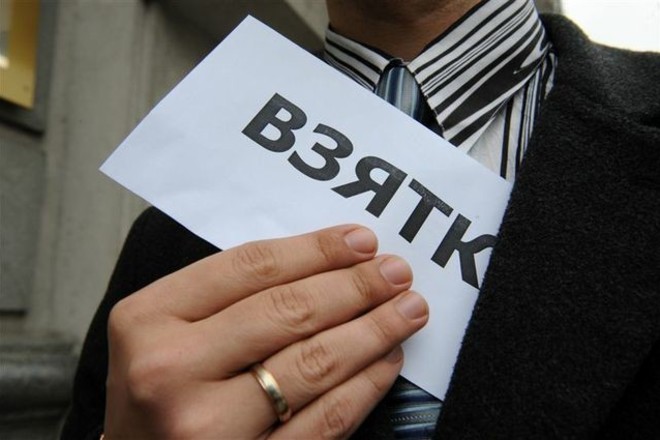Enterprises have the right to give gifts incentives to employees. Gifts are issued to employees in accordance with article 191 of the Labor Code of the Russian Federation. Incentives in the form of gifts are not given for achieving outstanding results or fulfilling the norms of the plan. Gifts are given to employees in honor of festive events. Often they are prepared for the New Year, March 8 and some professional dates. They also give gifts to children of employees on holidays.
Registration
Gifts at enterprises are always free. Before giving gifts to employees, you need to consider how they are reflected in official documentation. And they draw up the donation procedure either orally or in writing.
When registering gifts for employees, they comply with a number of requirements that require agreements. This category includes real estate, gifts worth more than three thousand rubles. There are additional recommendations on how to reflect gifts to employees. Any issuance requires issuing an order from the management, drawing up lists of employees, statements with signatures of employees in order to confirm their receipt.

The documentation of this type when issuing gifts to employees is drawn up in any form.
Often, goods, products manufactured by the enterprise itself serve as a gift. However, it should be borne in mind that both ordinary gifts and gifts to the children of employees are reflected without fail in accounting.
About accounting
Entries in accounting are made on the account for issued gratuitous gifts. At the same time, for example, employees record New Year's gifts as materials, products of their own production. Expenses that are written off to the profit account are not taken into account in the number of income expenses in tax accounting. They are not recorded in tax accounting. For this reason, an obligation appears, reflected in the posting of New Year's gifts to employees, if it is a holiday.
If tickets to any event are free, but they are fixed on the account 50.03 and processed by postings. A permanent tax liability is recorded in account 99.2.3.
It is often believed that New Year gifts intended for distribution to employees should not be attributed to the organization's balance sheet as an asset. This policy is considered illiterate, since the purchased asset will not bring profit in the future. For this reason, gifts are shown on account 91.02.
VAT
Gifts for employees who were received in the reporting period, if their value amounted to no more than four thousand rubles, are not taxed on value added. This item is noted in Article 217 of the Tax Code of the Russian Federation.

It follows that there is no reason to worry if the total value of gifts to employees is less than 4000 rubles. Any money above this amount must be taxed.
VAT is deducted from an amount exceeding four thousand rubles either on the day when gifts to employees or gifts to the children of employees were given out, or on the day next to the payment of wages. The organization’s accountant must inform the tax authority about the amount of gifts and the amount of value added tax that has been calculated and withheld.
If New Year's gifts were given to employees when they no longer worked for the enterprise, the accountant informs the tax authorities about the amount in ruble equivalent.
There are cases when the total value of the gifts is above 4,000 rubles, and the employee does not have income in this organization, although he is in the state or outside the staff list.Then the accountant informs the tax about the price of gifts, as well as that it is impossible to withhold tax. This situation occurs, for example, when an employee is on parental leave or on long-term leave at his own expense.
Insurance premiums
When giving gifts to employees, insurance premiums are withdrawn when necessary so that the transfer of the gift is reflected in the agreement with the employee. This is not required if the transfer took place on the basis of a deed of gift.
Value added tax is calculated when gifts are issued by property. And do not count when they are issued in the form of cash.
When New Year presents are bought for employees, the accrued VAT is sometimes accepted for reimbursement from the state budget.
More on accounting
When reflecting the fact of issuing New Year's gifts to children of employees, there are always a lot of different questions. How to fix this act? Is it worth making the issuance of New Year's gifts to the children of employees as a charity?

Suppliers are sometimes not payers of value added tax. This may be associated with the transition to a special regime or with the release on the basis of Article 145 of the Tax Code of the Russian Federation. In these cases, there is a lack of input taxes, no deductions are made. Then the organization not only charges the value added tax on New Year's gifts to the children of employees, but also pays taxes.
To avoid this situation, a number of enterprises draw up gifts as additional wages. To this end, another clause is added to the award agreement. It fixes that the transfer of gifts is carried out as an incentive or incentive act, and the price of gifts is reflected in the wage fund. From this point of view, giving gifts does not fall under the value added tax.
However, this decision has a very significant minus. There is a great possibility that soon the tax authorities will check the operations, and in the end will make a decision on declaring them as gratuitous transfers. But the practice contains several positive examples for taxpayers. There is no guarantee that inspectors will win in disputes.
The easiest way out is to exclude even the chance that a disagreement will begin. Experts recommend avoiding problems by calculating value added tax.
Write-off of the value of gifts
The value of gifts to be issued, as well as the price of any given products, is not subject to taxation. This follows from Article 270 of the Tax Code of the Russian Federation. Moreover, in accounting, the price of gifts is necessarily reflected in the number of costs. As a result, a distinction arises between tax and accounting on an ongoing basis and a tax liability.
Withholding personal income tax
Gifts from the organization are considered employee income in kind. Therefore, when they are handed over, management must carry out the calculation and withholding of personal income tax. But this is not done in all cases, but only when the final cost of this product exceeds four rubles. The price of gifts that has not exceeded this mark is not subject to taxation.
And then people often face the question of whether to include VAT in the base, which is subject to income tax. But the Tax Code does not finally answer this question. The point of view is widespread that nevertheless it needs to be done. Article 211 of the Tax Code of the Russian Federation contains a provision stating that the base is a value recorded at market price. While VAT is part of market prices. For this reason, personal income tax is charged on the value of the gift with VAT.
About premiums
The bonuses that employees receive in the process of participating in an employment relationship are considered contributions for cases of temporary disability. For example, this situation may arise due to motherhood.
Also, a “injury rate” fee is necessarily paid from this amount. This requirement applies to gifts handed to the employee. At the same time, there is a way that allows not to carry out the assessment of the contribution. And this is completely legal. The thing is that you can transfer the gift not within the framework of labor, but in the field of civil law relations.
Gifts for children
Most enterprises donate products not only to workers, but also to their children, and in some cases to those who are already retired. The main feature of this process is manifested in the fact that such a gift was not originally associated with labor relations. Therefore, they are not presented as an incentive. For this reason, they are carried out as a gratuitous transfer, while calculating the value added tax.
But arbitration practice records other cases. Then the gifts to those who have retired are considered as a charity event. Activities in this area are not subject to taxation. The fact that it is exempt from VAT is evidenced by Article 149 of the Tax Code of the Russian Federation. In this case, the judicial authority confirms that the organization is exempted from the obligation related to the value added tax.

The consequences of charitable activities are little different from donations. Charity is not subject to value added tax and no deduction is made. And with free transfer, the tax is equal to the amount of deductions. Ultimately, it turns out that the amount payable in both cases is zero.
But sometimes charitable activities become more profitable. For example, this includes the acquisition of gifts from organizations that do not pay value added taxes. There are no deductions in this case, and tax is accrued when the gifts are made out as a gratuitous transfer.
But you need to remember that charity involves a number of risks. So, it is likely that such disputes will often result in a victory of the tax authorities in court. For this reason, for everyone who does not want to spend time, effort and money on litigation, the best option would be to take care of the calculation of value added tax in advance.
Regardless of how the transfer of gifts to the children of workers and those who retire is recorded, spending on gifts for the purpose of taxation of profits is not taken into account. They also do not carry out the calculation of the insurance premium for the final amount of the gift. Personal income tax is mandatory for those who have retired if the price of gifts for a year exceeds four thousand rubles.
About documentation
There are several subtleties that are also important to consider in this process in order to avoid all kinds of disagreements with the tax authorities. In particular, competently executed documentation is important.
The issuance of gifts is made by concluding a deed of gift. It is always executed in writing when the price of the gift is above three thousand rubles, and the transfer is made by a legal entity. But in order to avoid disagreements with the tax, there is a recommendation to conclude an agreement with the employee, regardless of the final price of the gift.

If the gifts are issued in large volumes, you do not need to draw up a separate contract for each case. You can draw up multilateral donation agreements. And everyone to whom they are issued, sign in the document. Such a procedure is sufficient to comply with all legal requirements.
The fact that the gifts were purchased and issued must be drawn up by the relevant management of the organization. For the order, you can apply a single form. Then you need to draw up a separate order for the purchase of gifts.
But there is another way - issuing a single order in a free form both regarding the purchase and the transfer. In addition to the order, you need a list of employees to whom gifts will be given.
There are a number of rules regarding the compilation of gift transfer statements.So, each of them is drawn up in a statement. It prescribes the personal data of the employee: his surname, name, patronymic. It is necessary that the name of the gift is indicated, the date when it was transferred, and the person who received the item signs it. In this case, the use of free form is permissible. The statement must contain the details needed in any primary documentation.
More about logos
Often carried out the transfer of items with the logos of the company or products that are sold by a legal entity. Often this applies to postcards, calendars, pens, packages, diaries and so on.
When the price of souvenirs exceeds four thousand rubles, then when they are issued, the enterprise acts as a tax agent for personal income tax. Insurance premiums are not accrued when gifts are presented to those who are not among the employees of a legal entity.
As regards value added tax, the procedures are similar here. If the company pays VAT, then when issuing souvenir products, it pays VAT in the same way as during any other issue of rights to possess goods at no cost.

Gifts are taken into account, taking into account exactly how souvenirs are presented. If they are transferred not within the framework of the official reception, then the action is fixed in the number of advertising expenses.
To confirm the fact of spending on advertising, you need to draw up expenditure documentation, for example, invoices for the issuance of souvenirs to the employee who is responsible for their distribution. You also need to record the employee report on this action.
In the initial documentation on the disposal of gifts, only their price and number should be entered. It is not considered mandatory to record the final recipient. This action confirms that the goods are addressed to an indefinite circle of persons. For this reason, expenses are written off to the advertising account. If the company creates these conditions, then you can write off souvenirs at the expense of advertising costs.
Often there are questions related to the transfer of souvenirs to a business partner. Article 264 of the Tax Code of the Russian Federation contains a provision on hospitality expenses. They are associated with servicing representatives of partners, other legal entities with which negotiations are being conducted. But the question arises as to whether the number of these expenses includes expenses for the purchase of souvenir products for business partners. The Tax Code does not contain an exact answer to the question, and opinions were divided into 2 opposite camps. The Ministry of Finance of the Russian Federation indicates that the cost of buying souvenirs for official reception is not subject to taxation.
Tax services allow you to keep track of the costs of souvenirs with company logos for issuing them during official negotiations. And the same position is set forth in a multitude of court decisions.
At the same time, hospitality expenses are subject to accounting when the tax base is determined, if it is documented and recognized as fully justified.
The documentation by which representation expenses are confirmed includes orders of the management of the legal entity that the event was held, cost estimates, agreement on the production of souvenirs, primary documents, acts on the implementation of this category of expenses with the signature of the management, report on representation expenses.
The latter should reflect the purpose and outcome of the event, its date, venue, program, members of the delegation and host, the amount of expenses.
We must not forget about the important point: in order to take into account the cost of souvenir products as representative, it is important to draw them up in documentation in accordance with all requirements of the law.
Gifts to the Director
The law applies somewhat differently to gifts granted to directors, managers or legal entities. When a gift is presented to legal entities, individual entrepreneurs, personal income tax does not arise.But if you give the employee an enterprise, then personal income tax is charged. The insurance premium is not subject to accrual when it comes to the issuance of gifts to individual entrepreneurs or legal entities. The argumentation here is quite ordinary: in this case, labor or civil law relations do not arise with the person to whom the gift is presented.
Gifts for Government Officials
When it comes to holidays, then, of course, they think about gifts at state-owned enterprises. They are presented to officials and employees of administrations or tax services. But it is important to remember that gifts are prohibited to public servants if they are presented in connection with the performance of their official duties.

This prohibition is imposed by Federal Law of December 25, 2008 No. 273 "On Combating Corruption". Gifts received by civil servants during business trips, during a series of official events, are considered state property. They are mandatory fixed in a certain act, and then transferred to the appropriate state body. And the civil servant himself has the right to redeem the gift. But there are a number of requirements for this procedure. They are recorded in the Decree of the Government of the Russian Federation dated 09.01.20014 No. 10. Gifts are returned to the employee when an acceptance certificate is issued, and also when its value does not exceed three thousand rubles. But if the gift was transferred in order to bribe a civil servant, then it is considered a bribe. At the same time, it is important that, in exchange for the gift of an official, they are forced to perform some action. The responsibility for the bribe lies both with the public servant himself and with the one who gave it.
Conclusion
Gifts are a source of joy for both the giver and the giver. They are often provided to employees of the organization. But in enterprises, they act as additional bureaucratic efforts for an accountant. It is important to take into account the recommendations when preparing the documentation given in the article, and then everything will be in order.
